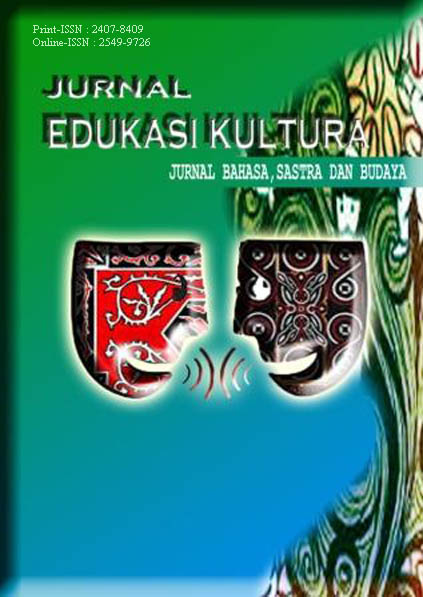Etnomatika sebagai Pendekatan Alternatif dalam Pengembangan Matematika Kontekstual Berbasis Budaya
DOI:
https://doi.org/10.24114/edukasikultura.v12i1.66305Abstract
This discussion explores the complex relationship between ethnomathematics and multicultural education, highlighting ethnomathematics as an integral part of multicultural education. Multicultural education aims to create equal educational opportunities for students from different races, ethnicities, social classes, and cultural groups. The concept of multiculturalism includes two complex meanings, namely "multi" which means plural, and "culturalism" which means culture. Pluralism is not only a recognition of diversity, but also has political, social and economic implications, closely related to democratic principles. The multicultural approach is understood as a field of science that studies cultural fragments in society. Gollnick, Chinn, and Parekh's definition emphasizes the use of students' cultural backgrounds to develop effective learning in the classroom and school environment. Multicultural education means that every individual has the same opportunities in a plural life, and strategies are needed to manage diversity to shape the collective life of society Diversity that is managed well can become a new force in society to create a democratic life. In the context of mathematics, multicultural education has great potential for development, highlighting special dimensions in knowledge and knowledge construction. Ethnomathematics, although rarely found in Indonesian, has been studied and translated into Malay.References
Bishop, Alan J. (1991). "Enkulturasi Matematika: Sebuah Perspektif Budaya dalam Pendidikan Matematika." Dordrecht: Kluwer Academic Publishers. Asiala, Mikko dkk. (1997). "Akar Budaya Matematika." Pemikiran dan Pembelajaran Matematika.
Chrissanti, M. I. (2018). Etnomatematika sebagai salah satu upaya penguatan kearifan lokal dalam pembelajaran matematika. Math Didactic: Jurnal Pendidikan Matematika, 4, 243-252.
Fitriatien, S. R. (2016). Pembelajaran berbasis etnomatematika. Surabaya: Pascasarjana Universitas
Negeri Surabaya.
Sirate, S. F. S. (2015). Menggagas integrasi multikultur pembelajaran matematika: Suatu telaah
etnomatematika. Auladuna: Jurnal Pendidikan Dasar Islam, 2(2), 246-
263.
Published
How to Cite
Issue
Section
License
Copyright (c) 2025 Mhd Irwansyah, Elvi Mailani, Yusniar Arroyo Nainggolan, Nenny Windah Sipangkar, Jogian Sibatuara, Maya Alemina Ketaren

This work is licensed under a Creative Commons Attribution 4.0 International License.

This work is licensed under a Creative Commons Attribution 4.0 International License
Authors who publish with this journal agree to the following terms:
- Authors retain copyright and grant the journal right of first publication with the work simultaneously licensed under Creative Commons Attribution 4.0 International License that allows others to share the work with an acknowledgement of the work's authorship and initial publication in this journal.
- Authors are able to enter into separate, additional contractual arrangements for the non-exclusive distribution of the journal's published version of the work (e.g., post it to an institutional repository or publish it in a book), with an acknowledgement of its initial publication in this journal.Penulis.
- Authors are permitted and encouraged to post their work online (e.g., in institutional repositories or on their website) prior to and during the submission process, as it can lead to productive exchanges, as well as earlier and greater citation of published work (Refer to The Effect of Open Access).



